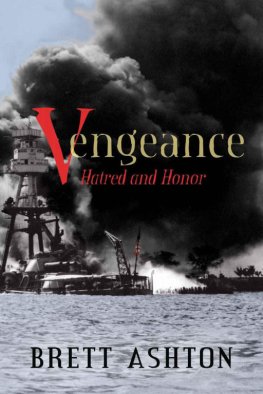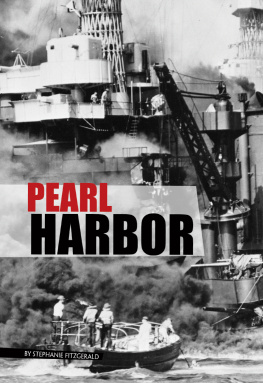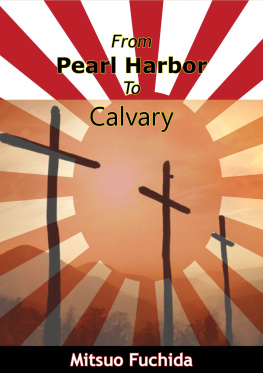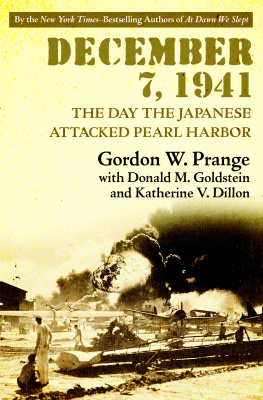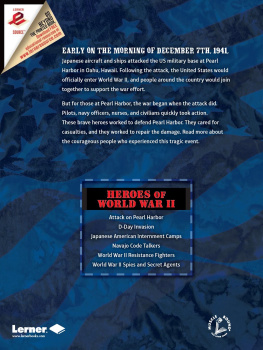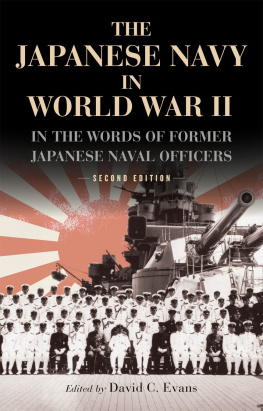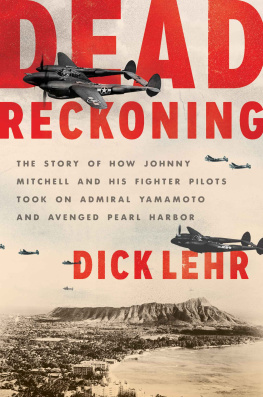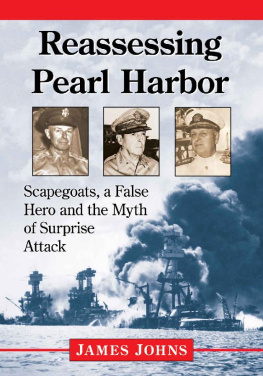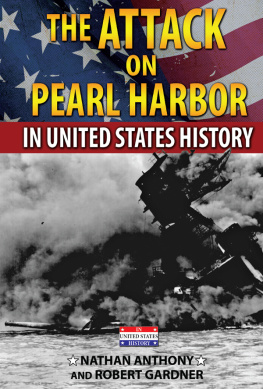Brett Ashton
VENGEANCE
Hatred and Honor

After writing the original manuscript and passing it out to various friends and family for their opinions, some things came to my attention that I thought I needed to address.
The first is that the main character uses some very harsh language in describing the Japanese. You must keep in mind that this story takes place during World War II, and that kind of talk was to be expected at the time. This is not a book about battleships or the war; it is a book about hatred. Without the hatred, I simply would not have much of a story.
If this bothers you, I urge you to consider that in the navy in those days, the word Nip, for example, would have been surrounded by language that would have made a prostitute blush. It would have also been preceded and followed by large, heavy projectiles loaded with high explosives that would have caused a most painful and gruesome death should any of them hit you or explode near you.
I find it a striking commentary on our society that someone would notice the racial slurs and be upset about them but not be upset about the fact that we were killing people. Think about that for a second. If you were a Japanese pilot dive-bombing an American battleship, would you be more offended by the American sailors calling you bad names or the fact that twenty-five thousand rounds per minute of antiaircraft ammunition were being sent in your general direction?
But that was then, and this is now, and I do understand our society well enough to know which way the wind blows. And I do get it that some people are going to be offended by the main characters language. If you are one of those people, I can only beg your indulgence until the end of the book. You will like how it turns out. I personally think that if the outcome of wars were determined by who could insult somebody else the worst and the high explosives were kept to ourselves, the world would be a much happier place.
The second and most obvious of these things was that when I said battleship, I meant something entirely different than what people who have no military experience mean when they say battleship. After talking about this with a few people, I came to the realization that what they mean is any ship in the navy that fights, whether big or small, which is not at all what one is. A battleship is a very specific thing. The big guns on one of these ships would throw a 2,700-pound projectile (about the weight of a Volkswagen) twenty-two miles. At a much closer range, that projectile would punch right through thirty inches of steel.
The first clue on this was that while I was watching some documentaries on World War II, I noticed that the men who served on these ships always spoke of them in a certain way. After listening for a while I realized they have a reverence for them. I began to wonder about this, and after doing a brief survey of the people I knew, I began to understand that people in general dont know what a large role the battleship played in history in the formation of the modern world.
Thousands of years ago, man discovered that he could move large amounts of goods over water. Upon doing so, he became able to communicate and trade with other people in other parts of the world. And so the formation of nations was largely built on these trade routes, which became known as shipping lanes.
For as long as men have been able to move goods and wealth over water, they have desired to control the shipping lanes. If you controlled the shipping lanes, you controlled the wealth and fate of nations. Entire societies were made or destroyed by the movement over these lanes, which resulted in men who would desire power or wealth becoming very interested in them.
The merchants moving along the shipping lanes feared the pirates who clung closely to them in attempts to try and steal the wealth. The merchants employed navies to defend them from the pirates. As nations grew, kings and queens sent huge armadas to sea to protect them from pirates and the kings and queens of other nations because their kingdoms rested upon the strength of their rule of the sea. Those who would rule the world had to rule the seas, for if you ruled the seas, you could control anything the oceans touched. If you had a mighty navy, you were a superpower. If you didnt, you were a nobody.
Somewhere around the fourteenth century, men discovered guns, and a new era of naval combat began. Instead of ramming or trying to throw fire at the enemys ships, they could shoot at each other.
They would square off in the open seas and slug it out, ship to ship. On each of them were the most powerful weapons their country could devise, directly facing the most powerful weapons their enemies could devise. Before long, the guns got bigger. Armor was invented to repel the bigger guns. Powerful engines were invented that replaced the sails. Soon, ships were made of steel instead of wood. Again, the guns got bigger, and the armor got thicker and would repel shots fired from bigger guns. Soon, more powerful engines had to be made to move all of the armor and guns.
From the fourteenth century until the Japanese attacked Pearl Harbor and the world discovered it was impossible to defend a ship from a large assault of relatively inexpensive airplanes, naval combat had remained basically unchanged: maneuver swiftly to deliver the hardest punch. Maneuver swiftly to evade the hard punches. And be able to take the hardest punches while still being able to deliver the hardest punches. No guided missiles, no airplanes dropping bombs, no guided torpedoes, and radar still in its infancy. Ship to ship and man to man, often in direct line of sight, was how combat was conducted, and he who was the best lived to fight another day while the other spent infinity in Davy Joness Locker.
The battleship was the culmination of those efforts. They were the queens of the sea and the most powerful weapons on Earth for more than ninety years.
The battleship sailors were an elite corps because through their hands, those who would rule the world would exercise their power. They, as battleship sailors, were the mightiest of the mighty and the proudest of the proud. They were the men who would dare to wield the Hammer of Thor.
The ones who are still living are the last of their kind.
As the junior reporter at the local talk radio station, I usually get assigned by the program director to do a lot of interesting interviews for the entertainment and local interest segments of the news. An example of such an assignment usually comes in the form of a Post-it note on my desk or on my computer monitor saying, Easter coming upplease go to the mall, find the Easter Bunny, and interview him for the news department next week. So I spend a lot of time chasing down the people behind various fund-raising events, the local dogcatcher, the winner of the Best Hog Contest at the county fair, some of the more colorful homeless people, and at least once a year, even the venerable department store Santa Claus falls prey to my microphone.
So I wasnt surprised when returning from just such an assignmentan important interview with a woman who swears she saw Jesus in a taco salad (or something like that)to find another Post-it stuck in the middle of my monitor reading, Please interview Jacob S. Williamsnew centenarian, prior to his birthday, November 29. Wow, I said out loud, I get to do an interview with an old man. Of course there were several chuckles from my nearby coworkers, who had learned to find amusement in the sometimes extraordinary nature of my assignments.

